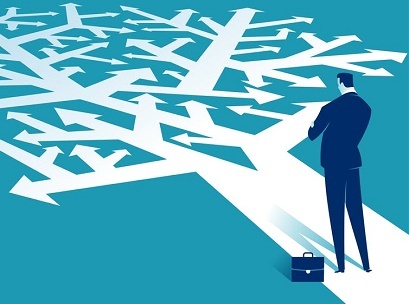Indeed, the abundance of choices has become both a privilege and a burden. From choosing an hotel for a vacation to deciding on a career path, the multitude of options can be empowering, yet there’s a tipping point where the sheer number of possibilities becomes paralyzing. When faced with numerous options, our brains tend to go into overdrive, meticulously analyzing each alternative and its potential consequences. As a result, we become trapped in a never-ending cycle of weighing pros and cons, fearing making the wrong decision, and ultimately procrastinating or avoiding making any choice at all.
This pervasive issue extends beyond our personal lives, reaching into the professional sphere, hindering personal growth, impacting relationships, and stifling progress. In the fast-paced arenas of business and entrepreneurship, where timely decisions are crucial, the consequences of indecision can be particularly detrimental.

The adverse effects of excessive choices are exemplified in the world of fitness, where individuals often grapple with an overwhelming number of exercise options, classes, and routines. This constant bouncing from one fitness endeavor to another resembles a racquetball bouncing around during a gym class. The lack of focus prevents individuals from achieving the desired results, showcasing the real-world implications of indecisiveness. Notably, the transformative process occurs gradually through consistent commitment to one decision, avoiding the overcomplication of various choices.
The ramifications of indecision as a result of overwhelming choices are far-reaching. It can lead to missed opportunities, stagnation, and a general sense of dissatisfaction with our lives. The inability to make decisions can hinder personal growth, impact relationships, and hinder progress in both personal and professional spheres.
Taking action is emphasized as the key to success, contrasting with the counterproductive tendencies of self-monitoring and overthinking when facing an abundance of choices. Overcoming indecisiveness involves identifying core actions for desired trait changes. Instead of contemplating abstract goals, such as becoming less messy, engaging in specific actions like cleaning serves as a catalyst for change.

To illustrate the transformative power of consistent action, let’s consider the example of organizing several tasks into manageable groups. By reframing the goal as filing a thousand things and steadily achieving it, mental resistance diminishes, leading to a shift in behavior and growth. This method offers a practical approach to breaking free from the shackles of indecision and embracing the power of choice.
Today’s society has evolved into an action-oriented space, emphasizing practical steps over abstract contemplation. Individuals often find themselves ensnared in the intricate web of choices, where the constant influx of options can foster a sense of overwhelm. However, the paradox of choice emphasizes the essential requirement for a harmonious integration of decisive action and thoughtful contemplation. Instead of serving as a justification for indecision, the plethora of opportunities underscores the importance of striking a balance between proactive engagement and making informed choices based on priorities.
Sources




